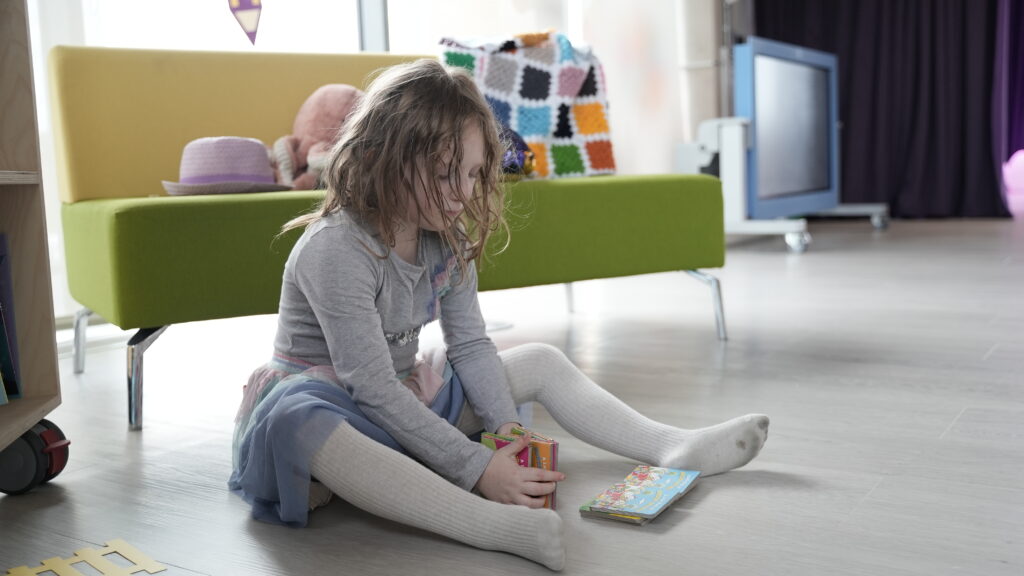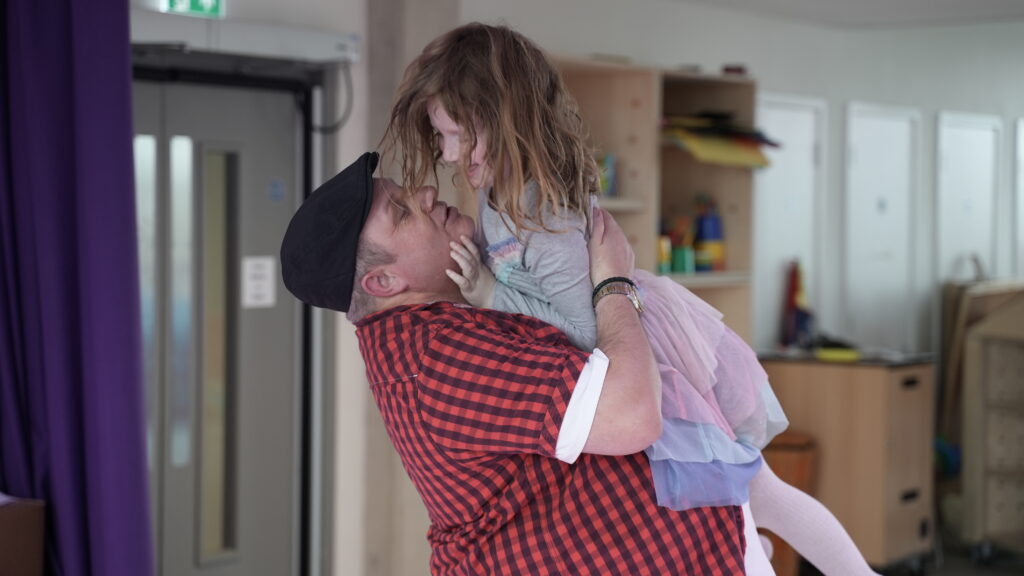Sense gave our family a lifeline: Makaton
For Chloe’s mum, Laura, the prospect of never being able to communicate with her daughter was scary. But with encouragement from Sense, Chloe, who has autism, gradually started to venture outside her own world and interact with her family. Makaton still plays a key role in connecting Chloe with the people around her.
I remember when Chloe was around two years old, our concerns about her development got more serious. She was behind in her speech – not even babbling – and she didn’t smile or make eye contact.
Chloe is five now, and has recently been diagnosed with autism, global developmental delay and sensory processing disorder. We were told that she might never talk. That was really daunting for us; it sounded like we weren’t ever going to be able to connect with our daughter.

Our breakthrough came with Sense, who took what they called “a total communication approach”. This meant giving Chloe all sorts of options and ways to interact until she found the mix that worked for her. They introduced us to Makaton as a way to communicate and things started to fall into place.
A beautiful way to connect with our daughter
Makaton is a beautiful way of communicating using signs and symbols. It suited Chloe because her key reasons for wanting to engage with us were, like any other child, to let us know what she wanted. With Makaton, she could make her needs known with a few key signs, before picking up signs for ‘thank you’ and ‘goodbye’.
Chloe took to it, but in her style. She created her own signs and developed a form of communication that mixed those with formal Makaton. It’s been a lifeline, one that we were really struggling to build before.
Sense has definitely helped Chloe’s communication skills – and her desire to communicate – come along. She comes out of herself in the play sessions more and will join in group activities, something we started to think would never happen. She’s hit quite a few milestones over the last 12 months, but in the last 6 months her communication has developed more rapidly. We see the progress every day.
Both the Sense “Connect and Play” and music sessions helped massively. When she got into music, it kind of opened up a gateway. She’s even sung happy birthday to her dad and, once, she did ‘heads, shoulders, knees and toes’ in full! It’s just a little glimpse into her potential, she’s letting us know she can do it – her way.

We have a lot more happy times as a family
Without Sense I’m not absolutely sure where Chloe would be. When she was diagnosed with autism at the beginning of this year, it was completely new to us. We didn’t have any experience of autism and hadn’t ever heard of global developmental delay. Wanting to understand what it all meant, we went to the internet in search of answers.
Most of what we found was quite scary. It was hard to feel positive about Chloe’s future at that point. Chloe wasn’t engaging with other people or activities – she’d never even acknowledged the existence of her youngest brother – and she had some quite challenging behaviours as a result of her frustration at not being understood by us.
She wasn’t happy, never smiling or laughing, and we didn’t know how to reach her. Now though, with her new social confidence, I’ve seen my daughter grow, communicate, and flourish.
Sense has been a beacon for Chloe and us. It’s a community. We don’t feel as negative; we have a lot more happy times as a family.
Chloe smiles and laughs now. She’s learned to be relaxed and is better able to connect with her brothers and with other people. We’re so proud of all the expectations she’s defied, and all that she’s yet to show us.
Makaton International Awareness Day takes place on 28 August. This is the birthday of Makaton founder Margaret Walker.
Makaton or “key word signing”, was developed for use by very young children and people with learning disabilities or other communication needs. Today, more than 100,000 children and adults in the UK use Makaton, either as their main way of communicating or along with speech.
